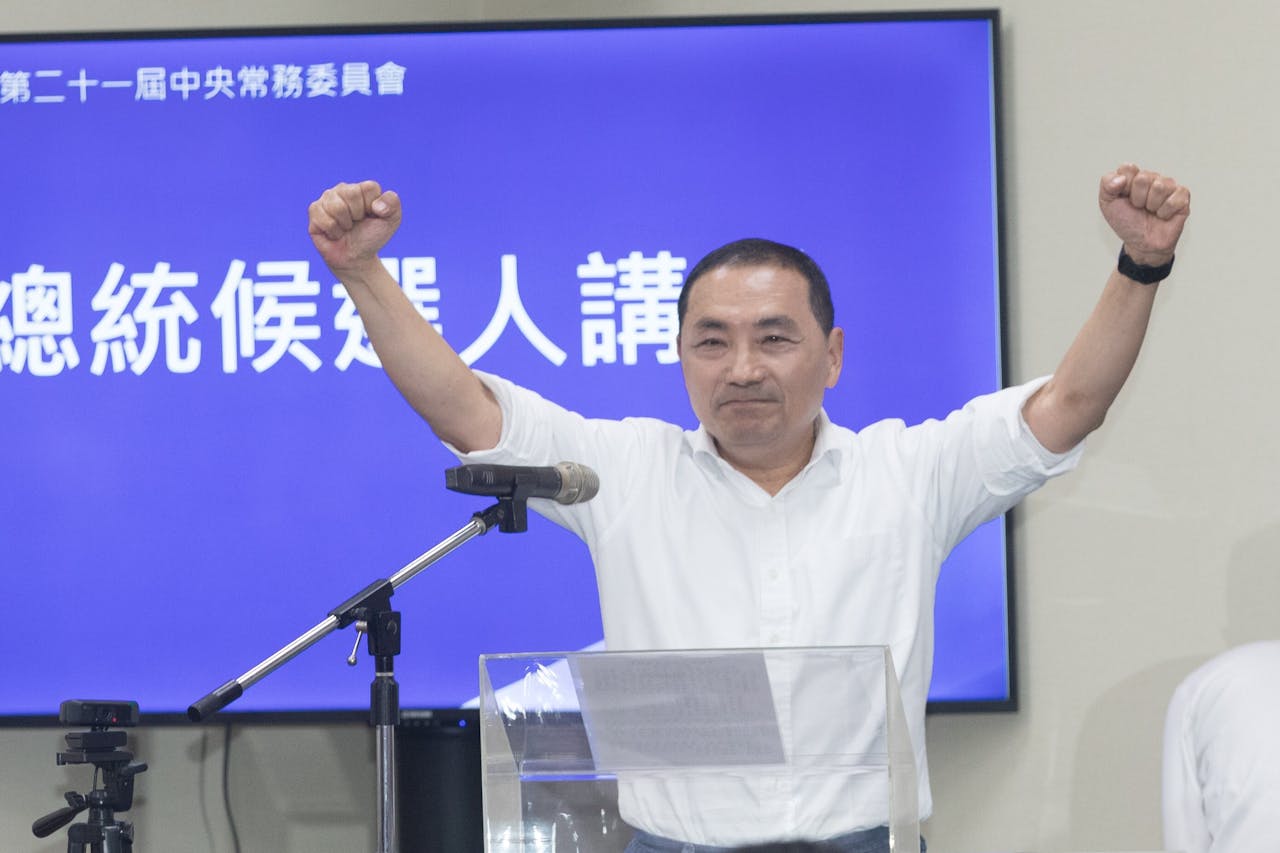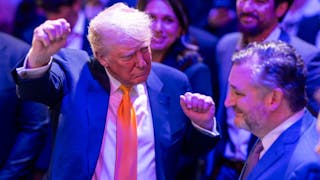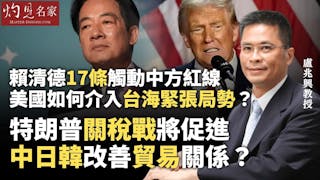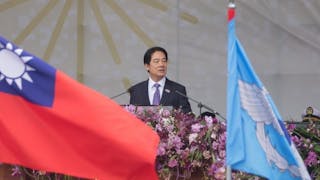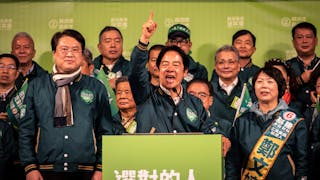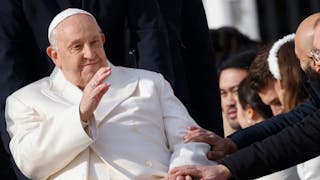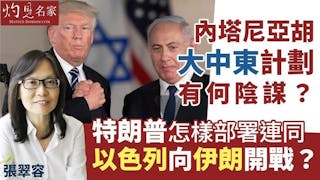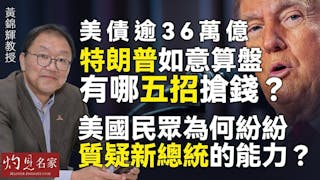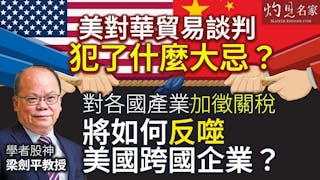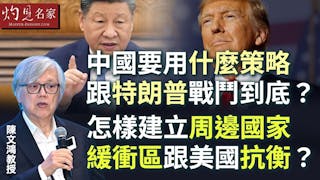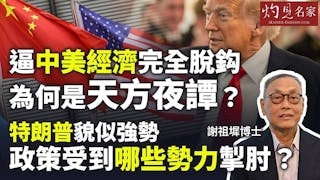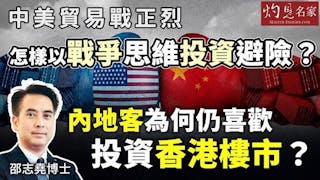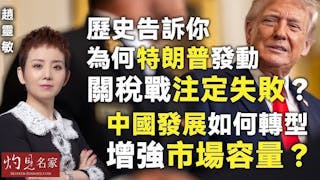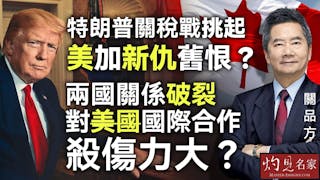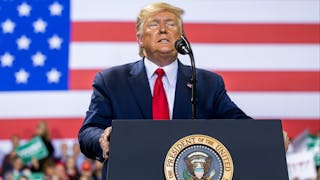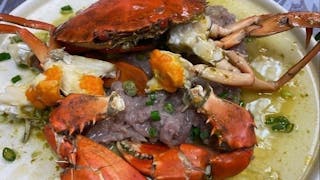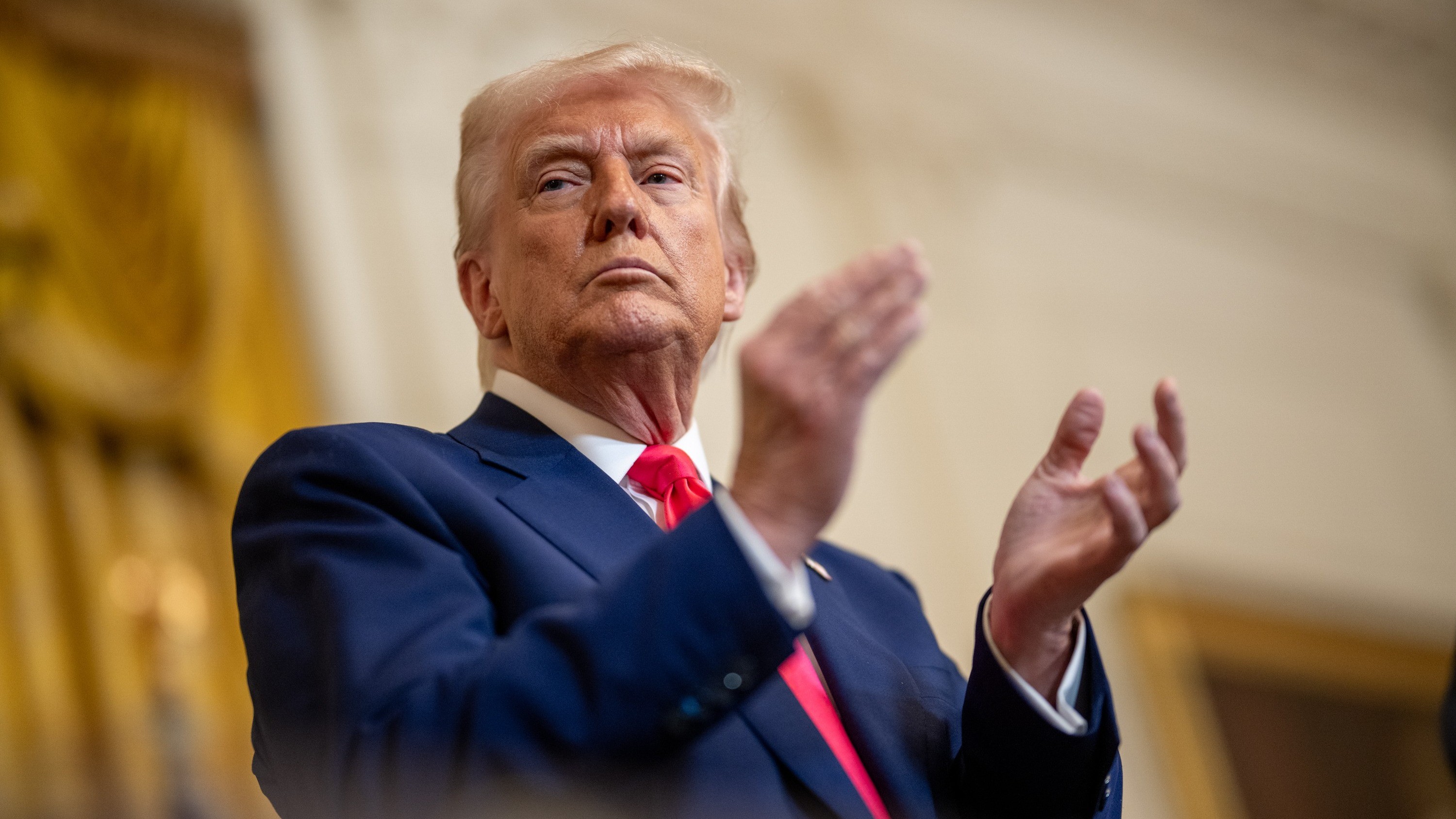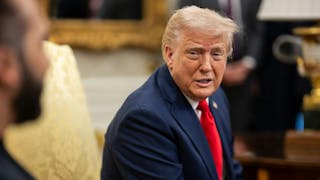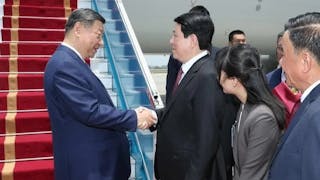國民黨已宣布徵召侯友宜參選 2024 年 1 月台灣總統大選,而台灣民眾黨的柯文哲也決定角逐總統選舉。然而,國民黨將如何調整其競選策略以爭取台灣選民的支持,尤其是中間和務實的選民支持,仍有待觀察,而柯文哲可能會成為「造王者」,甚至是強勁的對手,足以在明年的大舉中製造意外的結果。
侯友宜獲國民黨提名為總統候選人並不令人意外,這有幾個原因:
第一,執政民進黨已經提名副總統賴清德參選,國民黨不應再浪費時間,宜大力為侯友宜造勢,讓他的知名度上升,在現在到 2024 年初的選戰期中競爭,甚至超越賴清德。
第二,鴻海集團創辦人郭台銘儘管尋求國民黨提名,但他在民意調查中的支持度已經落後於侯友宜。國民黨領導層不得不更加果斷地告知郭台銘不是屬意人選,提名侯友宜的決定,可以解讀為解決國民黨內部紛爭和可能因提名爭議而導致分裂的舉措。
據台灣傳媒報道,郭台銘似乎不高興,他正在日本散心,這讓他缺席國民黨支持侯友宜的集會。有傳國民黨主席朱立倫與郭台銘會面時態度冷淡,並向郭台銘表示,如果他能說服侯友宜不參選,黨中央將改變決定。
很明顯,朱立倫並不想憑其個人的心血來潮來將任何人強加在國民黨的提名票上──這是一個精明的決定,因為民意調查無疑是決定誰是總統大選最佳候選人的更準確指標。朱立倫在保持相對中立方面做得很好,同時將民意調查結果作為決定國民黨黨內最佳候選人的合理手段。
過去郭台銘退出國民黨時,曾給人政治上動搖的印象。儘管他重新加入國民黨,他的黨內支持度已經減弱。
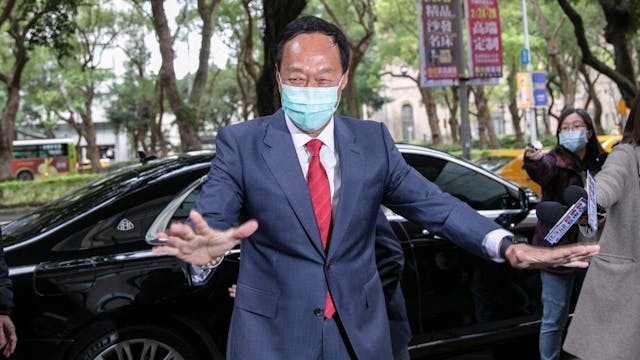
郭台銘可做兩岸關係中間人
不過,郭台銘作為在中國大陸成功的商人形象,或許會讓他與國民黨前主席馬英九一樣,成為兩岸關係的潛在中間人。 目前尚不清楚郭台銘會否決定扮演中間人的角色。
據傳媒報道,柯文哲的民眾黨可能會提名該黨的年輕成員、台北市前副市長黃珊珊作為競選拍檔。
國民黨的侯友宜能否贏得 2024 年總統大選,將取決於幾個因素:
首先,侯友宜需要想出一個強大而有吸引力的競選平台,尤其是兩岸關係。 據了解,他個人對兩岸關係的表述和對國際政治的理解都比較薄弱。因此,他一直在研究這些政治問題,以提升他作為國民黨強大候選人的形象,並在兩岸平台和國際關係方面吸引選民。
其次,侯友宜需要具體解決台灣的治安問題,因為犯罪和吸毒問題似乎在上升。作為警政署前署長的侯友宜,確實有助於他作為一個能夠並且會處理與犯罪有關問題的候選人。
侯友宜爭取藍營縣市長支持
諷刺的是,那些有黑道背景的國民黨地方黨員中,有幾個可能不願意支持他。事實上,台灣傳媒在侯友宜正式獲提名為黨內候選人後,立即質疑他會否接近那些背景可疑的國民黨地方人士。 侯友宜一直打電話聯繫藍營縣市長,特別是因為他們將構成強大的地方「樁腳」,在台灣總統選舉中為侯友宜爭取選票。 侯友宜打擊犯罪的形象及其尋求國民黨地方精英無條件支持的必要性,其困境可見一斑。
第三,大陸對國民黨的政策和姿態將如何塑造,以與侯友宜的平台對接,成為兩岸和平的唯一候選人,還有待觀察。大陸開始放寬台灣遊客來大陸旅遊的限制,這是胡蘿蔔式的政策,給台灣人民帶來了實實在在的經濟利益。大陸與台灣的關係很可能會繼續以有利於侯友宜政治形象的方式而略為緩和。
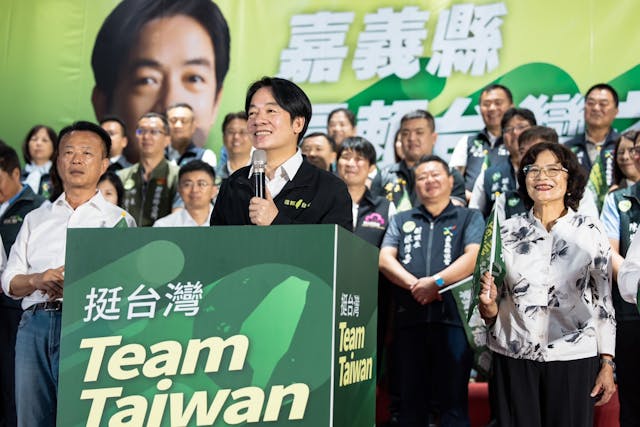
賴清德包袱沉重缺乏政治創新
第四,賴清德目前在他的平台上似乎缺乏政治創新,這種現象可能有助於侯友宜的選情。賴清德目前只強調和平的重要性,但受到幾個問題的妨礙:來自總統蔡英文的沉重包袱和責任、一直採取對抗和挑釁大陸的政策(特別是在 2022 年夏天冒着激怒大陸領導層的風險,發展與時任美國眾議院議長佩洛西的關係)、不願對大陸採取更友好的政策,並在他的競選綱領中延續了強烈的意識形態基調。如果賴清德和他的幕僚不能打造一個對中間派選民更具吸引力的平台,侯友宜甚至新星柯文哲都有機會擊敗民進黨。
第五,2024年大選中最令人期待的黑馬是近期訪美3周的柯文哲。他的競選綱領比賴清德和侯友宜更特別,提出了五個互相──互相認識、互相了解、互相尊重、互相合作和互相諒解,同時主張新的現狀(不統一、不衝突)以及倡導台灣是中國大陸和美國之間的橋樑。
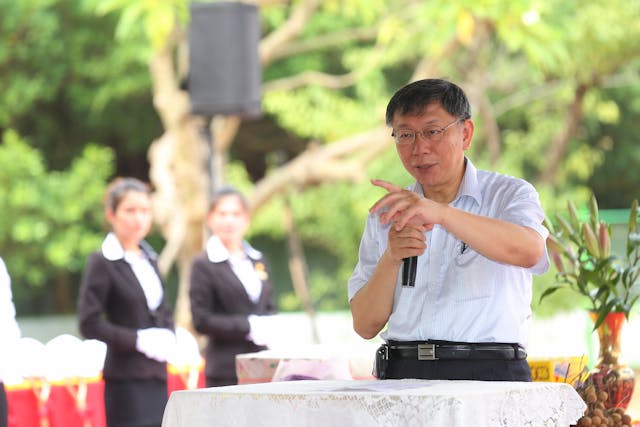
柯文哲視台灣為中美橋樑
柯文哲將台灣視為中美橋樑的觀點,有別於反大陸的賴清德和目前現狀的支持者侯友宜。 侯友宜反對「一國兩制」,但他還沒有跟大陸提出建設性的建議。
如果侯友宜可以用更具體和建設性的兩岸關係思維重塑他的平台,中間的選民可能會對國民黨更感興趣。否則,柯文哲的民眾黨或許會成為2024年總統大選有力的造王者,甚至是一匹黑馬。
柯文哲的另一個與侯友宜和賴清德截然不同的鮮明政綱是,他強調如果當選台灣的總統,將組建聯合政府──這是一項需要廣泛共識的政治創新。從某種意義上來說,柯文哲的平台可能會產生促進大陸對台統一戰線工作的意想不到的效果。擁有一個聯合政府,意味着在理論上和實踐上,大陸將能夠在未來幾年呼籲聯合政府建立更緊密的經濟、社會文化和政治關係。
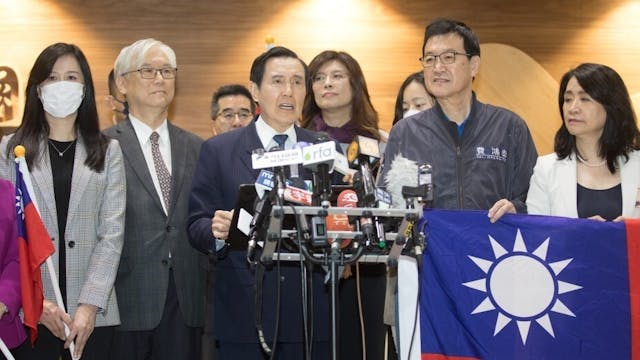
國民黨上台可延續馬英九路線
此刻,大陸或許更看好國民黨的侯友宜,因為兩岸關係在馬英九時代已經走得很近了。 國民黨在政治上捲土重來將有助於大陸對台灣的對外聯絡工作。
近期的民調顯示,柯文哲的能耐遠超預期,更多年長選民反對民進黨執政。如果這種趨勢持續下去,民進黨很可能在2024年迎來執政的終結。雖然民意調查顯示,許多年輕選民仍然支持民進黨,但民進黨顯然受到長期執政和持續對抗大陸政策的影響,尤其是渴望穩定和真正和平的老年選民。
鑑於柯文哲在眾多年輕、溫和、務實的選民中很受歡迎,他很可能會從民進黨的淡綠陣營和國民黨的淡藍勢力中拉走支持者。如果柯文哲成功的話,他可能會給2024年的選舉爆出大冷門。
如果上述分析顯示民進黨執政極可能受到威脅,那麼對大陸和美國的政治影響也將是巨大的。大陸當局可能不得不考慮如何以建設性的方式與侯友宜的國民黨互動,制定有利於台灣務實和中間選民的政策。另一方面,如果柯文哲要在即將到來的選舉中成為一支強大的力量,大陸將不得不思考如何建設性地應對柯文哲。
美國需對兩岸有更務實政策
同樣,美國方面的決策者可能不得不重新考慮他們可能過度支持民進黨的政策是否應該繼續下去,特別是如果選舉結果將產生一個非民進黨政府。一些鷹派的美國戰略家經常誇大對台灣的「中國威脅」。儘管如此,美國更富有成效和更務實的政策,是研究通過對話和談判使兩岸關係和平、信任和建設性的可能性情景,而不是製造相互對抗、打口水仗甚至衝突。
綜上所述,國民黨提名侯友宜、民眾黨提名柯文哲參加台灣2024年總統選舉的決定,已經掀開了島內政治發展的新篇章。侯、柯、賴之間非常緊張的三路角逐,將是台灣島內外所有觀察人士分析的最精彩的選戰。最重要的是,他們的競選政綱將決定選民,尤其是年輕、中間派和年長選民如何在 2024 年 1 月的選舉日投票。此刻,侯友宜和賴清德似乎都是有力的競爭者,但柯文哲是黑馬也是潛在的「造王者」,以及隱藏版的強大候選人,他們可以並且很可能在接下來的8個月內聲勢突然上升。如果民進黨在蔡英文執政的最後一年和賴清德的新領導下有如日落西山,那麼侯友宜的新面孔和柯文哲的創新平台可能會帶來 一場高度不可預測的激烈競爭、在政治上激動人心且意義空前的台灣總統選舉。
OPINION – Will Ko Wen-je or Hou Yu-ih win the 2024 presidential election in Taiwan?
The Kuomintang (KMT) has nominated Hou Yu-ih as its presidential candidate running for the January 2024 presidential election in Taiwan, while Ko Wen-je of the Taiwan People’s Party (TPP) has decided to make a similar move. Nevertheless, it remains to be seen how the KMT will shape its campaign strategies in such a way as to woo the support of Taiwan voters, especially those who are moderates and pragmatists, while Ko Wen-je will likely be a kingmaker or even a strong contender producing an upset in the 2024 election.
Hou Yu-ih’s nomination as the KMT presidential candidate is not surprising for several reasons.
First, the ruling Democratic Progressive Party (DPP) has already nominated its vice-president William Lai as the candidate, and as such, the KMT should not waste any time to groom Hou and make his popularity increase in such a way as to compete and even outrival Lai in the current transition leading to early 2024.
Second, business tycoon Terry Guo of the KMT announced that he would seek nomination, but Guo’s popularity in public opinion polls have lagged behind Hou, and therefore the KMT leadership had to make a more decisive move to inform Guo that he is not the favoured candidate. The decision to nominate Hou can be interpreted as a move to settle the KMT’s internal dispute and possible split because of any controversy over nomination.
It is reported in the Taiwan media that Guo appears to be unhappy and that he is visiting Japan for a trip that makes him absent in a KMT rally in support of Hou. It is also rumoured that KMT party chair Eric Chu received Guo’s visit cooly, and that Chu told Guo that, if Guo could persuade Hou not to run, then the party centre would alter its decision.
Obviously, Eric Chu did not want to use his personal whim to impose any candidate onto the KMT nomination ticket – a shrewd move given the fact that public opinion polls were undoubtedly a more accurate indicator deciding who is the best candidate running for the presidential election. Chu did a good job in maintaining his relative neutrality while using the poll results as a legitimizing means of deciding the most popular candidate within the KMT.
Terry Guo has given an image of showing political fluctuations as he withdrew from the KMT in the past. Although Guo re-joined the KMT, his internal support has waned.
Guo’s image as a successful businessman in mainland China, however, would perhaps position him well as a potential middleman in cross-strait relations, along with former KMT president Ma Ying-jeou. It is unclear whether Guo would decide to play the role of a middleman.
Ke’s TPP would likely nominate its own younger member, former Taipei deputy mayor Huang Shan-shan according to media reports, as a running mate.
Whether Hou Yu-ih of the KMT would win the 2024 presidential election will depend on several factors.
First, he needs to come up with a powerful and attractive campaign platform, especially one on cross-strait relations. It is reported that Hou is personally weak in his articulation of cross-strait relations and understanding of international politics. Hence, he has been studying these political issues to beef up his image as a strong KMT candidate with a cross-strait platform and international relations profile attractive to voters.
Second, Hou needs to concretely address Taiwan’s law and order issues as crime and drug addiction appear to be on the rise. Hou as a former police commissioner does help him as a candidate who can and will deal with crime-related issues.
Ironically, a few of those KMT local members with shady background would perhaps be reluctant to support him, and in fact the Taiwan media immediately questioned Hou whether he would approach those KMT local elites with suspected background once he was formally nominated as the party candidate. Hou has been acting diplomatically by calling and contacting the local elites of the KMT, especially as they would constitute powerful local “piling legs” which grasp votes for Hou in Taiwan’s presidential elections. The dilemma of Hou’s image of fighting crime in general and of his necessity to seek unconditional support of KMT’s local elite can be seen.
Third, it remains to be seen how the mainland policies and gestures toward the KMT will be shaped in such a way as to converge with Hou’s platform as the only candidate bringing about peace across the two straits. The mainland has begun to relax the restrictions for Taiwan tourists to visit mainland – a carrot-type policy showing concrete economic benefits to the people of Taiwan. It is likely that mainland relations with Taiwan will continue to be slightly relaxed in a way beneficial to the political image of Hou.
Fourth, William Lai currently appears to lack political innovation in his platform and this phenomenon would likely help Hou’s campaign. At present, Lai only emphasizes the importance of peace, but he is hampered by several issues: the heavy baggage and liability from president Tsai Ing-wen who has been adopting a policy of confronting and provoking the mainland (especially cultivating relations with Nancy Pelosi in the summer of 2022 at the risk of alienating the mainland leadership); the reluctance of adopting a more friendly policy toward the mainland; and the continuation of a strong ideological tone in his campaign platform. If Lai and his advisors fail to shape a platform more attractive to moderate voters, Hou and even the rising star Ko Wen-je would have a chance of defeating the DPP.
Fifth, the most exciting dark horse in the 2024 election is and will be Ko Wen-je who recently visited the US for three weeks. His political platform is far more special than William Lai and Hou Yu-ih by putting forward five mutuals – mutual knowledge, understanding, respect, cooperation, and accommodation while arguing for a new status quo (no unification and no conflicts) as well as projecting Taiwan as a bridge between mainland China and the US.
Ko Wen-je’s point on Taiwan as a Sino-US bridge distinguishes himself from the anti-mainland William Lai and the currently status quo supporter Hou Yu-ih. Hou rejects the “one country, two systems,” but he has not yet come up with a constructive proposal with the mainland.
If Hou can reshape his platform with more concrete and constructive ideas on cross-strait relations, moderate votes would perhaps be more interested in the KMT. Otherwise, Ko’s TPP would perhaps be a powerful kingmaker and even a dark horse in the 2024 presidential elections.
Ko Wen-je’s another distinguishing platform quite different from Hou and Lai is his emphasis on the formation of a coalition government if he were elected as the Taiwan president – an innovation that would call for broad political consensus. In a sense, Ko’s platform would likely have an unintended consequence of facilitating the mainland’s united front work on Taiwan. Having a coalition government means that, theoretically and practically, the mainland would be able to appeal to such government for a closer economic, socio-cultural, and political relations in the years to come.
At this moment, the mainland perhaps finds Hou Yu-ih from the KMT a more favourable candidate as cross-strait relations have already been propelled in a closer way during the Ma Ying-jeou era. Having a political comeback from the KMT would facilitate the mainland’s outreaching work toward Taiwan.
Recent public opinion polls have shown that Ko Wen-je is much stronger than conventional wisdom expected, and that more elderly voters tend to reject the continuation of DPP rule. If this trend persists, the DPP would likely witness the end of its presidential rule in 2024. Although public opinion polls show that many young voters still support the DPP, the party appears to suffer from its long period of governance and its constantly confrontational policy toward the mainland, especially among the elderly voters who yearn for stability and real peace.
Given that Ko Wen-je was popular among many young, moderate, and pragmatic voters, he will likely draw supporters away from both the DPP’s light green camp and the KMT’s light blue force. If Ko succeeds in doing so, he would perhaps bring about a tremendous upset in the 2024 elections.
If the above analysis that the DPP’s rule is very likely endangered, the political implications for both the mainland and the US will be tremendous. The mainland authorities may have to figure how to interact with Hou’s KMT in a constructive way, coming up with policies favourable to Taiwan’s pragmatic and moderate voters. On the other hand, the mainland will have to ponder how to deal with Ko Wen-je constructively if he is going to constitute a formidable force in the upcoming election.
Similarly, the US policymakers may have to rethink whether their policy of perhaps excessively supporting the DPP should continue, especially if the election result would produce a non-DPP government. Some hawkish US strategists have often exaggerated “the China threat” on Taiwan; nevertheless, a more productive and more pragmatic US policy is to study the possibilities and scenarios of making cross-strait relations peaceful, trustful, and constructive with dialogue and negotiations rather than producing mutual confrontations, shouting matches and conflicts.
In conclusion, the decision of the KMT to nominate Hou Yu-ih and that of the TPP to nominate Ko Wen-je to participate in the 2024 presidential election in Taiwan has already opened a new page on the island’s political development. The very tight and tense three-way race between Hou, Ko and Lai will be the most exciting electoral contest for all observers to analyse inside and outside the island of Taiwan. Most importantly, their campaign platforms will determine how voters, especially the young, moderates and elderly ones, will cast their ballots on the election day in January 2024. At this moment, both Hou and Lai seem to be strong contenders, but Ko is a dark horse and a potential kingmaker as well as a hiddenly strong candidate who can and will likely climb up suddenly in the forthcoming eight months. If a sunset of the DPP in the final year of Tsai Ing-wen and under the new leadership of William Lai is perhaps looming, then the new fresh face of Hou Yu-ih and the innovative platform of Ko Wen-je will likely bring about a hotly contested, highly unpredictable, politically exciting, and unprecedentedly significant presidential election in Taiwan.



